What is SOCIAL ANXIETY DISORDER like?
Many people feel nervous or become very self-conscious on several occasions, such as when giving a welcoming speech or a job interview. But, social anxiety disorder, aka social anxiety or social phobia, is more than just shyness or nervousness.
Let’s learn more about social anxiety disorder and how to treat it from the review below.
What Is Social Anxiety Disorder Like?
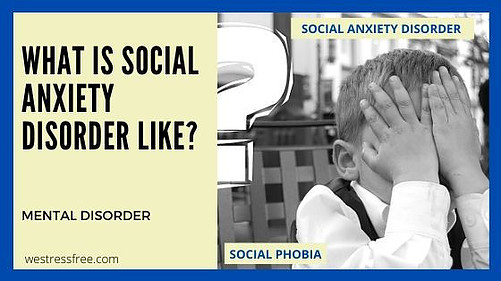

With social anxiety, your fear of self-humiliation is so strong and takes over that you avoid every situation that can trigger that fear.
Anxiety disorders often appear first in childhood or early adolescence and tend to occur in women.
Social anxiety disorder is a complex phobia that has a destructive, disabling effect on the life of the person who has it. This social phobia disorder can affect confidence and self-esteem, sabotage relationships as well as the performance at work or school.
Social anxiety disorder is one of the anxiety disorders that causes extreme fears when in the social environment. People with this disorder have difficulty talking with others, meeting new people, and attending social gatherings.
The basis of social anxiety disorder or social phobia is fear of being observed, judged by the public eye, or embarrassing yourself in public. You may be afraid that people will think badly of you or that you will not perform/work as well as expected or be equal to others.
Someone who experiences this disorder is afraid of being judged or judged badly by others. They may understand that their fears are irrational or unreasonable, but someone with this condition feels powerless to overcome them.
Also read: Do You Overcome INSECURITY?
Social anxiety is different from shame. Shame is usually short term and does not interfere with a person’s life. Social anxiety is persistent and certainly disrupts life. This condition can affect a person’s ability to:
- work
- go to school
- establish close relationships with other people
According to the Anxiety and Depression Association of America (ADAA), about 15 million American adults have a social anxiety disorder. Symptoms of this disorder may appear at around the age of 13 years.
=======> Brain boost buy 2 get 1 free <=======
Social anxiety disorder is a psychiatric disorder that is recognized by the medical world and can be treated effectively, so you should consult a doctor if you think you have this condition.
What Causes Social Anxiety?
The exact cause of social phobia is unknown. However, current research supports the idea that this condition is caused by a combination of environmental and genetic factors. Negative experiences can also contribute to this disorder, for example:
- abused
- family conflict
- sexual harassment
Disorders in the brain such as serotonin imbalance can cause this condition. Serotonin is a chemical in the human brain that has the role of helping to regulate mood, social behavior, appetite and digestion, memory, sleep, and sexual drive. An overactive amygdala (a structure in the brain that controls fear responses and feelings or restless thoughts) can also cause this disorder.
Anxiety disorders can occur in families. However, researchers are not sure if they are related to genetic factors.
For example, a child might experience an anxiety disorder by copying the behavior of one of their parents who has an anxiety disorder. Children can also experience anxiety disorders from being raised in an environment that is too confined.
Also read: Most EFFECTIVE MEDITATION Techniques: Overcome Anxiety Disorders
Signs and Symptoms of Social Anxiety Disorder
Someone with a social anxiety disorder may be able to show physical signs such as:
- blushed face
- nausea
- excessive sweating
- tremble or tremble
- difficulty speaking
- dizzy
- rapid heartbeat
Psychological symptoms can include:
- very worried about social situations
- worry that arises for days or weeks before an event
- avoid social situations
- worry about embarrassing yourself in social situations
- worry that other people will see you stressed or nervous
- need alcohol to deal with social situations
- not going to school or working because of anxiety
Is social phobia the same as shyness?
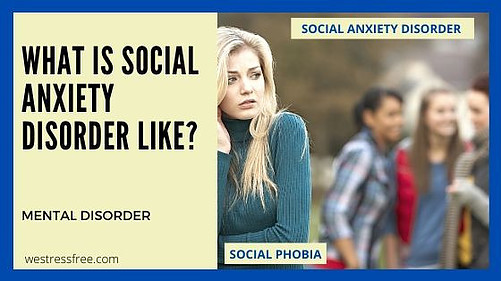

Social phobia is different from shyness. However, social anxiety disorder is not just an ordinary shame that is often misunderstood by the wider community.
Social anxiety disorder can create great damage to the lives of people who suffer from this condition. People who have a social anxiety disorder, or social phobia, may have very limited social or romantic relationships, making them feel helpless, lonely, even alienated.
Critics of the diagnosis of this disorder show that psychiatrists and pharmaceutical companies publish social phobias, a.k.a social anxiety disorders, to increase sales of psychotropic drugs, especially among young people. Besides, some argue that whether social phobia is mere “medicalization” of variations in the spectrum of human temperament.


Responding to the above criticism, quoted from the National Institute of Mental Health, Marcy Burstein, Ph.D., and the team examined the level of normal shyness among adolescents and other characteristics that overlap with social phobia symptoms using data from the National Comorbidity Survey-Adolescent Supplement (NCS-A), a national face-to-face survey of more than 10 thousand American youths aged 13-18 years. Social phobia is examined using a standard set of diagnostic criteria from the psychology and psychiatric guidebook: Diagnostic and Statistical Manual (DSM-IV), while shyness is examined with a scoring session of the question “How embarrassed are you when you are surrounded by people you don’t know well?”
=======> Brain boost buy 2 get 1 free <=======
The research team found that while half the population of participants identified themselves as shy, only 12 percent of the total shy children also met the criteria for social phobia in their lives. What’s more, among young people who don’t identify themselves as shy, around five percent of them meet the criteria for social phobia. These results indicate that shyness with social phobia is not always directly related. The existence of social phobia characteristics in the self may be as a stand-alone entity, separate from shame, in some cases.
Also, individuals who have social phobia are consistently more likely to have other psychiatric disorders in their lives, such as depression, personality disorders (PTSD, for example), or drug abuse, when compared to the shy child group. Those who have social phobia also show a higher level of inability to work in the work or school environment, or among family members or peers. Furthermore, they are less likely to get rescue care than shy children.
In a nutshell, Burstein’s research has proven that social phobia is not just a shame that is misunderstood. On the contrary, social phobia affects a small proportion of young people and only a small proportion of those who consider themselves shy.
Is social phobia antisocial?
Social phobia is also not antisocial. The term antisocial is often used for people who are considered to be loners, have no friends, and are less social.
Someone who is an Introvert often assumed to be shy, social phobic, or even avoidance of social situations. That said, don’t be mistaken. Many introverts can interact with other people easily; they are only more comfortable when they don’t socialize. Meanwhile, antisocial personality disorder is actually characterized by patterns of behavior that are exploitative, fraudulent, ignoring the law, violating the rights of others, and abusive (tends to be criminal) – without a clear or logical motive.
For people who have social anxiety or social phobia, they think that their involvement in a particular social situation might threaten their safety.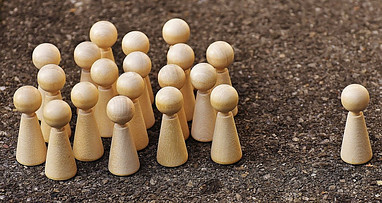

If you suffer from social anxiety or social phobia, the social situation may be so frightening to you that you experience excessive anxiety just thinking about it or trying as hard as you can to avoid it.
You think you might act or say something that will be very embarrassing, and show nervousness such as blushing, sweating, or appearing as someone who is incompetent (“I will look like a fool”; “My voice will sound shaky and I will certainly be ashamed of myself “;” People must think I’m very stupid “). Even though sometimes you know that your fears are a little irrational and excessive, you still cannot do anything to reduce that anxiety.
Your fears of social engagements can sometimes increase and trigger panic attacks, where you feel great fear, nervousness, panic, and anxiety. Panic attacks usually won’t last long. You may also encounter some physical symptoms, such as feeling ill/chills/nausea and want to vomit, sweating excessively, and heart beating rapidly. These symptoms often extend a peak before they actually subside. Fear not. Even if these symptoms can be daunting, they do not cause physical injury.
Also read: Helping Someone with Panic Attack
How to prevent social anxiety disorder?
Until now there are no standard guidelines that can be used to prevent social anxiety disorder. But social phobia doesn’t have to control your life. You can control your fear by:
- recognize the triggers that cause you to start feeling nervous
- practice relaxation and breathing techniques
- check with your doctor if you feel you have a social anxiety disorder
When to see a doctor
Fear of being judged by others is actually a natural feeling that everyone has. A person is also still considered normal if occasionally avoiding situations that make him uncomfortable, for example meeting new people.
But if the fear or anxiety lasts for a long time (about 6 months), it has disrupted daily activities, which prevents it from interacting with others, and affects work productivity or performance in school, immediately consults this problem with a psychologist or psychiatrist.
How is social anxiety disorder treated? – Social anxiety medication and treatments
Diagnosis
There is no specific examination to be sure if someone is experiencing a social anxiety disorder.
Health care providers can diagnose social phobias from descriptions of symptoms that appear. Doctors can also determine a person experiencing social phobia after examining certain behavioral patterns.
The doctor will use criteria to determine whether someone is suffering from a social anxiety disorder. These criteria include:
- a constant fear of social situations for fear of being insulted or humiliated
- feel anxiety or panic before undergoing social interactions
- realize that the source of fear doesn’t make sense
- the anxiety that interferes with daily life
=======> Brain boost buy 2 get 1 free <=======
Treatment
Several types of treatments are available to deal with a social anxiety disorder. Treatment will vary depending on the individual. Treatment options for social anxiety disorder include:
1) Cognitive-behavioral therapy
CBT therapy helps you learn how to control anxiety through relaxation and breathing techniques, and how to replace negative thoughts with positive thoughts.


2) Exposure therapy
This type of therapy helps you gradually deal with social situations, rather than avoiding them.
3) Group therapy
This therapy helps you learn social skills and techniques for interacting with people in the social environment. Participating in group therapy with others who have the same problem can make you feel not alone. So that it can help increase your confidence.
Simple treatment at home
Here is some simple treatment you can do at home if you feel that you experience social phobia or social anxiety:
- Avoid consuming large amounts of caffeine
- Enough sleep
- Medication use
For anxiety disorders that cannot be treated with supportive care as above, your doctor may prescribe anti-anxiety drug benzodiazepines such as alprazolam or clomipramine. Discuss with your doctor before starting treatment using any medication.
If you have more questions, please call a psychologist, psychiatrist, or therapist near you.
Stay safe, happy, and healthy!

—————————————————————————————————————————————–
This post may contain affiliate links, which means I make a small commission off purchases, at no extra cost to you. Read my full disclosure here. Thank you for supporting the work I put on this site!
 Brain Fitness Tool to Help You Learn to Stay Focused, Calm and Manage Stress
Brain Fitness Tool to Help You Learn to Stay Focused, Calm and Manage Stress
—————————————————————————————————————————————–
We Stress Free does not provide medical advice, diagnosis, or treatment. However, if you need someone to talk to and want to make friends, please feel free to reach me at ferra@westressfree.com. If you would like to REDUCE your STRESS and are interested to do an ONLINE THERAPY, you can do so here.
———————————————————————————————————-—————————-
Disclaimer: The information contained in this website is for educational and informational purposes only and is not intended as health or medical advice. Always consult a physician or other qualified health provider regarding any questions you may have about a medical condition or health objectives.
Thank you for reading today’s topic: What is social anxiety disorder like?

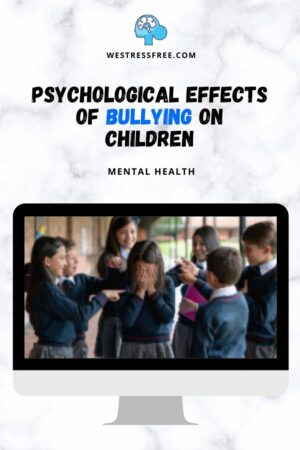
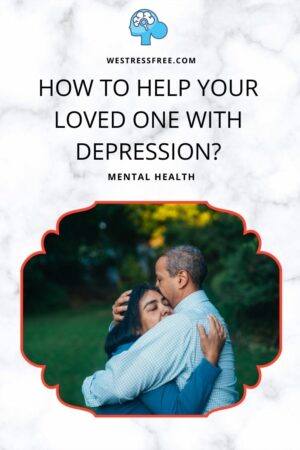

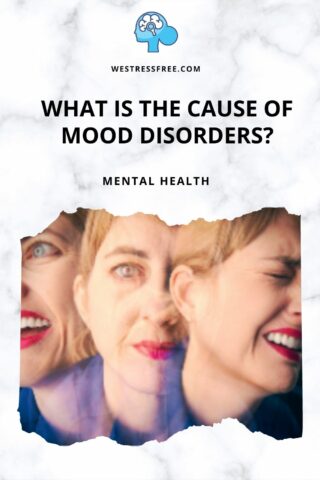
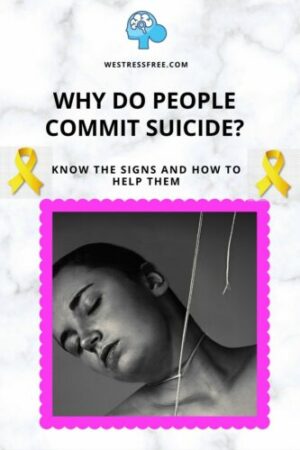


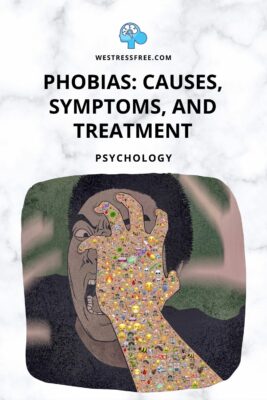

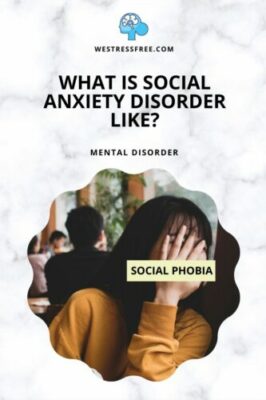
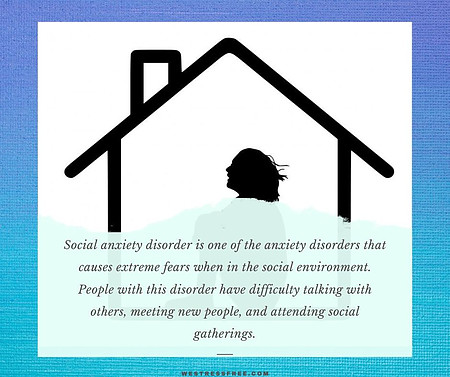


Hi Ferra – Your article is very interesting. I wonder if Social Anxiety Disorder is on the rise with COVID-19.
Many years ago I had a phobic fear of public speaking. The manifestations were similar to social anxiety disorder. The more I avoided it the worse it became. I was so afraid I became fearful of the fear. It took years, but there were 3 things that helped me overcome the phobia.
1) I attended the Dale Carnegie public speaking course.
2) I started doing regular public speaking, usually multiple times per week.
3) I saw a really good therapist for about 18 months. He helped me uncover and overcome hurts from my childhood.
Since then, I’ve spoken to as many as 3,500 people. Sometimes I face slight nervousness but not fear.
I’ve never forgotten what that fear was like. I have a lot of empathy for people who experience phobic fears. So, I am so glad for the work you are doing with your website. I hope it helps countless people.
Hello Glen,
That’s amazing to learn how you managed to beat your fears of talking in public. Thanks for sharing!
Thank you for stopping by my website, reading the post, and leaving a kind comment.
I appreciate you for sharing your thoughts and support.
Glad to hear that you found this post useful.
Stay safe, happy, and healthy!
Ferra
Great article! I think I know someone with social anxiety disorder… this person is always claiming they don’t care what other people think but I think they actually do care. I really think he has this disorder. What do you think?
Hello Alyse,
It depends on the person, really. Some would actually care, some would not care at all because they just might want to focus on their own feelings.
Thank you for stopping by my website, reading the post, and leaving a kind comment.
I appreciate you for sharing your thoughts and support.
Glad to hear that you found this post useful.
Stay safe, happy, and healthy!
Ferra
This is very interesting. My daughter has suffered from SAD most of her life. She has avoided many situations to avoid having those feelings of panic when in social situations. She has even had to back out of being the Maid of Honor and/or Brides Maid in her friend’s weddings as a result.
I can appreciate your list of possible treatment options. I would like to add Brainspotting as an excellent treatment choice. Dr. David Grand was the first doctor to bring forth this treatment option. I used it for my own anxiety issue (panic disorder) and it changed my life. Dr. D. Grand can be found on youtube talking about Brainspotting.
Really good article. Thank you very much.
Hi Teresa,
I will surely check Dr. D. Grand’s talks about Brainspotting. Thanks a lot for sharing.
I also want to thank you for stopping by my website, reading the post, and leaving a kind comment.
I appreciate you for sharing your thoughts and support.
Glad to hear that you found this post interesting read. I hope all is well with your daughter.
Stay safe, happy, and healthy!
Ferra
Social anxiety is a situation that many find themselves in at some point in their lives. Most of the time we do overcome the tendency to be anxious about our social encounters, but in all honesty, there will continue to show up from time to time. Using the skills you have discussed in your article and the resources listed there as well should go far in helping you keep the occurrence of the social anxiety sessions to a bare minimum.
Taking the time to review what causes you to be socially anxious and giving yourself some tips to help along the way will give you more control over your life. Avoiding social occasions can be hard to do, and why deprive yourself the fun and companionship of being able to enjoy those special times.
Learning to help yourself overcome enough to grow your confidence will help you with this social anxiety thing. Having some small note cards with positive statements to sneak in your pocket or purse will help. You don’t have to pull them out and actually see them. You just know they are there. I was surprised to find this was very effective when I first tried it. Try it and see if you don’t feel better. Thanks for this opportunity to remember how far I have come with social anxiety.
Hi Sami,
Thank you for stopping by my website, reading the post, and leaving a kind comment.
I appreciate you for sharing your thoughts and support.
Stay safe, happy, and healthy!
Ferra
Hi
First, I must congratulate you on a well-written article on social anxiety disorder, as you have covered every little thing a concerned individual or parent will have. I really like how you discussed the difference between social anxiety and natural shyness, as you can easily understand why an individual that can be seen as a loner can be mistaken for suffering from anxiety. I think the great difference is that someone who suffers from anxiety will feel the symptoms whilst shy people will not. I think it is such a shame as life can be suck out of them. I am glad you have covered all the treatments and with the help of doctors, friends and family it can be overcome.
What is the success rate of treatment between all the therapies suggested?
Thanks
Antonio
Hi Antonio,
Thank you for stopping by my website, reading the post, and leaving kind words and comments.
You gave me a great question. Up until now, I haven’t found studies that show the rate of success of those treatments since there are so many different factors that affected someone to have a social anxiety disorder.
I appreciate you for sharing your thoughts and support.
Stay safe, happy, and healthy!
Ferra
Hey Ferra,
Thanks for the very thorough article, my wife suffers from social anxiety and I have been trying to do some research to better understand what she is going through. She has a tough time explaining how it feels and has struggled to deal with it so we found this very helpful. Do you know if it is hereditary? My wife’s sister and mom both suffer from it as well.
Tyler
Hi Tyler,
Thank you for stopping by my website, reading the post, and leaving a kind comment.
You gave me a good question. According to some studies, there’s about 30 to 40 percent possibilities that social anxiety disorder is hereditary.
I appreciate you for sharing your thoughts and support.
Glad to hear that you found this post helpful.
Stay safe, happy, and healthy!
Ferra
I have social anxiety and your article has brought about some important information about the disorder. It is hard for family and friends to understand what you are going through unless they have gone through something similar. I don’t know how many times I’ve been asked why I was worrying over nothing? I know my worries sometimes are irrational, but that doesn’t stop the anxiety from setting in.
I have recently read that there is a link to anxiety and some vitamin deficiency? Have you done any research into this connection?
Hi Jan,
Thank you for stopping by my website, reading the post, and leaving a kind comment.
Yes, Jan. Some vitamins like vitamin D can contribute in helping our brain to regulate our mood.
I wrote an article about best vitamins for depression. I’ll write more about it in accordance with anxiety.
I appreciate you for sharing your thoughts and support.
Stay safe, happy, and healthy!
Ferra
Hi Ferra, you have a nicely written article here on an important topic for this day and age, and probably for decades to come.
I agree with the treatment methods listed here, though the thing that helps me the most seems to be limiting caffeine and processed sugar.
Hi Johan,
Thank you for stopping by my website, reading the post, and leaving a kind comment.
I appreciate you for sharing your thoughts and support.
Thanks for sharing what helps you, I am sure it will be helpful for others as well.
Stay safe, happy, and healthy!
Ferra